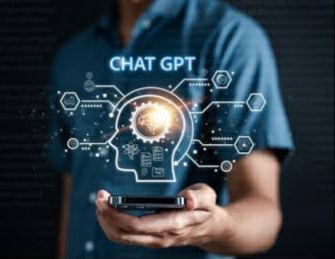ChatGPT is an advanced artificial intelligence (AI) technology developed by OpenAI that has the potential to revolutionize the way we interact with machines. With its ability to understand and generate natural language, ChatGPT can perform a wide range of tasks, from answering customer service inquiries to providing personalized tutoring or healthcare assistance. However, like all AI technologies, ChatGPT has its limitations, and there are ethical concerns that must be addressed to ensure that this powerful tool is used for good and not harm.
One of the most significant possibilities of ChatGPT is its ability to provide more personalized and engaging experiences for users. By understanding natural language, ChatGPT can tailor its responses to each user's needs and preferences, creating a more natural and intuitive interface for human-machine interaction. This could be especially valuable in industries such as customer service, where ChatGPT could help automate routine inquiries and provide more responsive and efficient service.
Another potential application of ChatGPT is in the field of education. With its ability to provide personalized tutoring or assistance, ChatGPT could help students learn at their own pace and provide additional support to those who need it. Additionally, ChatGPT could be used to assist students in finding information on a topic, answering questions, or helping with homework assignments.
In healthcare, ChatGPT could be used to assist doctors and nurses in diagnosing and treating patients, or to help patients manage chronic conditions. By providing personalized advice and assistance, ChatGPT could help improve the quality of care and reduce healthcare costs.
However, despite the many possibilities of ChatGPT, there are also limitations to its capabilities. For example, while ChatGPT is excellent at understanding and generating natural language, it may struggle with more complex tasks that require advanced reasoning and decision-making skills. Additionally, like all AI technologies, ChatGPT is only as good as the data used to train it. If the data contains biases or inaccuracies, these may be reflected in ChatGPT's responses.
Another concern surrounding ChatGPT and other AI technologies is their potential for destructive use. In the wrong hands, AI could be used to automate malicious activities such as phishing, identity theft, or cyberattacks. Additionally, there are concerns about the potential impact of AI on the job market, as machines may replace human workers in certain industries.
To ensure that AI is used for good and not harm, it's essential to address these ethical concerns and develop responsible guidelines for its use. This includes ensuring that the data used to train AI is diverse and free from biases, as well as developing robust security measures to prevent malicious use. Additionally, it's essential to consider the potential impact of AI on the job market and work to develop policies and training programs to help workers adapt to the changing technological landscape.
In conclusion, ChatGPT represents a significant step forward in AI technology, with the potential to transform many aspects of our daily lives. However, it's crucial to remember that AI is a tool, and its impact will depend on how we choose to use it. By developing responsible guidelines for its use and addressing ethical concerns, we can harness the power of AI to create a better world for all.
#chatgpt #Ai #blog #tech





1 Comments
Nice blog.
ReplyDelete